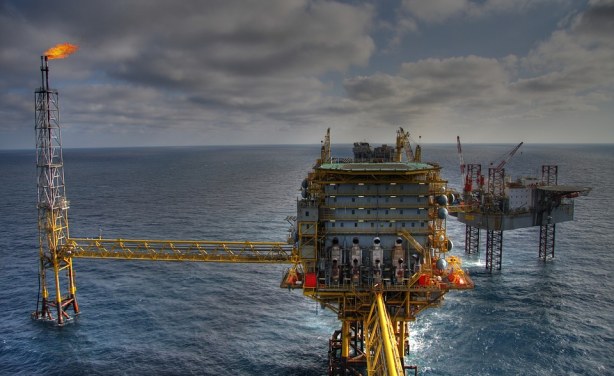-
Nigeria: Shell Data Under Scrutiny as Methane Emissions Rise
Premium Times, 3 October 2023
With over a third of methane emissions stemming from fossil fuels production and operation, oil majors - led by Shell - publicly claim to be reducing their methane pollution. Read more »
-
Nigeria: Shell Plans to Cut Methane Emissions
Leadership, 19 September 2018
Oil giant, Royal Dutch Shell said it will cut emissions of methane, a potent greenhouse gas, across its oil and gas operations. Shell aims to maintain methane emissions intensity… Read more »
-
Angola: Angola and Gabon Host Study to Map Methane Emissions
ANGOP, 4 April 2023
A new study to expose the amount of methane extracted from oil wells on the coast of Angola and Gabon and help map emissions of this gas will soon be carried out by the United… Read more »
-
Africa: Methane Emissions Are Driving Climate Change. Here's How to Reduce Them.
UNEP, 20 August 2021
If you've ever ventured into a cow pasture, chances are you've noticed an odour or two. What you're likely smelling is methane and it's more than just unpleasant. It's a potent… Read more »
-
Uganda: We Have Turned Climate Change Into a Climate Crisis
Observer, 20 September 2023
Have you seen or suffered unusual temperatures, rain, drought, landslides, earthquakes or floods lately? Blame climate change. Read more »
-
Rwanda: Rwanda to Offer Clean Cooking Technologies on Carbon Market
New Times, 12 September 2023
The carbon market framework, which Rwanda has developed, will "unlock financial incentives for the reduction of greenhouse gas emissions associated with traditional cooking… Read more »
-
Africa: COP28 Oil Company to Spend $1 Bn a Month On Fossil Fuels This Decade Despite 'Green' Claims
Global Witness, 4 September 2023
The oil and gas firm ran by the president of COP28 climate talks is set to spend more than $1 billion every month this decade on fossil fuels, despite its claims to be a leading… Read more »
Oil Giant Shell Data Under Scrutiny as Methane Emissions Soar
Methane is much worse for the climate than carbon dioxide, and emissions continue to rise despite global efforts to control them. Over a third of methane emissions come from fossil fuel production and operation. Oil majors, led by Shell, publicly claim to be reducing their methane pollution, but scientists, experts, and watchdogs warn that industry data reporting is misleading, write Fermin Koop, Michael Buchsbaum and Samuel Ajala.
Despite years of awareness about the climate crisis, greenhouse gas levels continue to soar. Historically, much of the focus has been on carbon dioxide, but it is now clear that a rapid and sustained reduction in methane is also key to limiting global warming. Methane has over 80 times the heat-trapping potential of carbon dioxide over 20 years, and it has contributed to over 30% of global temperature rise since the Industrial Revolution, according to the International Energy Agency (IEA).
Unlike carbon dioxide, which is a wasteful by-product of human activities, methane is a sought-after gas, produced by fracking and other gas-extraction methods.
Shell, one of the world's largest oil and gas producers and a leader in industry efforts to control methane, reported a decrease in total methane emissions from its operations from 50,000 metric tons in 2021 to 40,000 metric tons in 2022, a 27% reduction. It also claims to have met its target to keep methane emissions intensity below 0.2%. However, the way fossil giants calculate their emissions is flawed. Currently, only a small number of producers regularly take field measurements and do routine maintenance on equipment to determine leakages or other accidental emissions.
According to statistics provided by Nigeria's National Oil Spill Detection and Response Agency (NOSDRA) and the Gas Flaring Tracker satellite of the World Bank, oil companies throughout the nation, including Shell, have flared about $3.9 billion worth of gas in the last four years.
InFocus
-
An investigation has found that methane gas was the cause of the deadly Lillian Ngoyi Street (formerly known as Bree Street) explosion that rocked the Johannesburg city centre. ... Read more »




